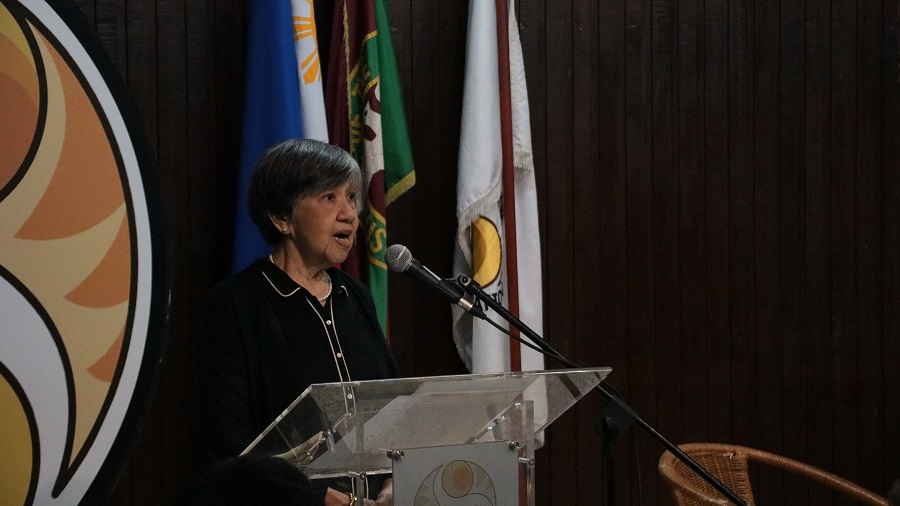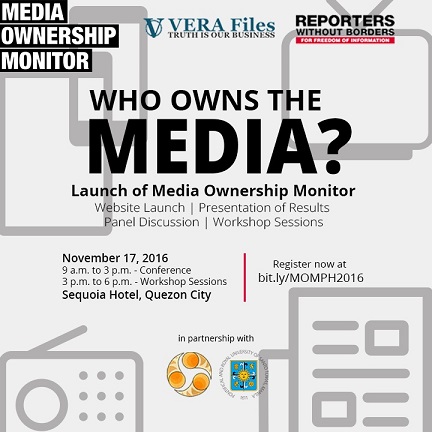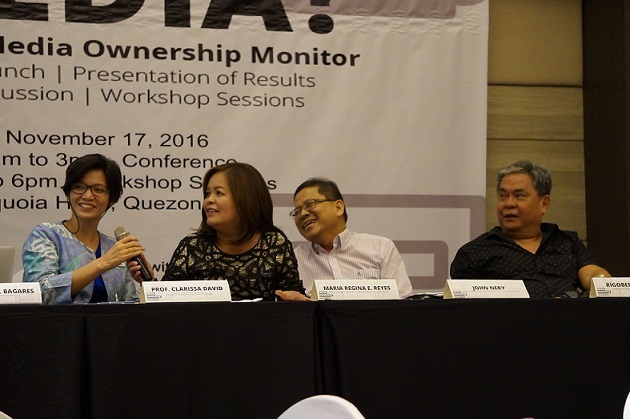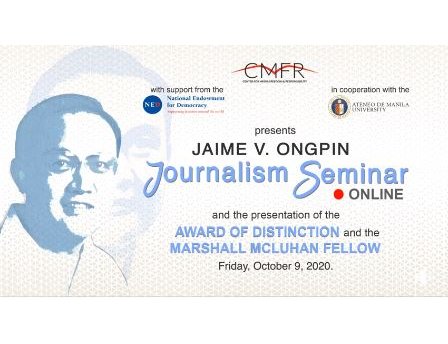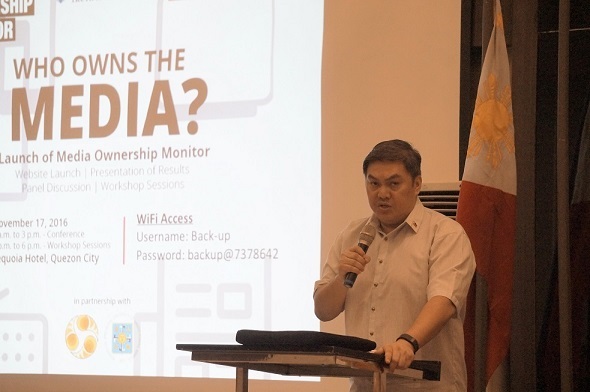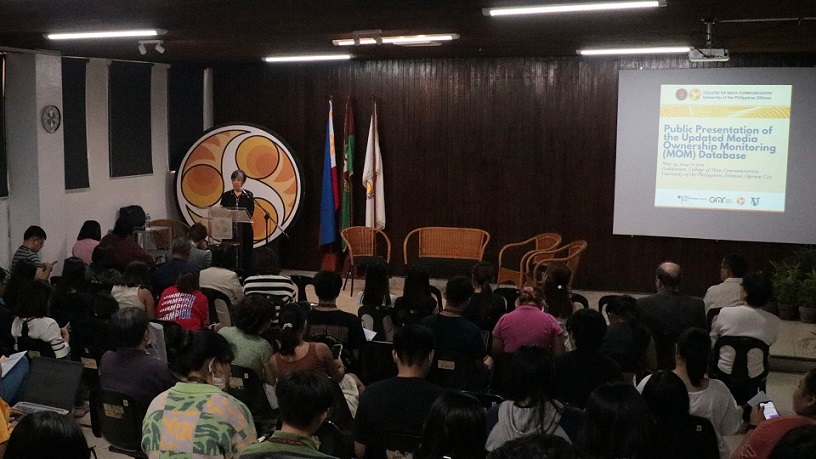
“Why did I buy a newspaper? Because it’s a pistol in my hip pocket.”
Center for Media Freedom and Responsibility executive director Melinda Quintos de Jesus recalled a media owner saying back in the day.
Years later, things remain the same – media owners still hold the power to influence the news for their vested interests.
In her keynote address at the public presentation of the updated Media Ownership Monitoring (MOM) Database in the Philippines, De Jesus warned of the dangers of leaving media owners unchecked.
“Unchecked media mogulry leads to the ironic situation of so much news that leaves a public ignorant of significant developments, of issues that affect their way of life from day to day, of being fed information about what is going on lacking in context, even factual accuracy,” the veteran journalist said.
De Jesus further underscored the importance of keeping the citizenry informed on who owns the media outlets where they consume their news.
“The purpose at hand is to keep the audience informed so they can discuss, analyze and interpret for themselves the influence that owners demonstrate over the news that they produce,” De Jesus said.
Spearheaded by VERA Files in partnership with Germany-based Global Media Registry (GMR) and with the financial support of the German Embassy in Manila, the research listed owners of 47 media outlets in print, radio, television and online media. The database provides comprehensive information on the outlets’ history, their major shareholders and board members, as well as linked controversies, backstories and personalities.
It is an updated version of the media ownership research conducted by VERA Files with Reporters Without Borders-Germany in 2016, which noted a Philippine media captured by the duopoly of ABS-CBN and GMA-7, before the former’s shut down in 2020.
“While the media landscape is now vastly different, data gathered during the 2023 research, showed many things have remained the same. Philippine Mass media remain predominantly owned and controlled by a handful of conglomerates and influential families with an interest favorable to their political and economic interests,” VERA Files president Ellen Tordesillas said in her project introduction.
Among the key findings is that many of the media companies resort to corporate layering. This makes tracing the ultimate beneficial owners more challenging and requires more extensive research, time, and resources.
“I call it sleuthing because of the things we unearthed each time in the course of research. Sometimes, it felt like it would never end,” Elma Sandoval, the deputy project director, said, describing the rigorous methodology that the team has gone through.
Religious groups or sects in the Philippines also maintain a strong influence operating television or radio stations that land among the top-ranked in audience share. Most ownerships of church-affiliated companies, however, do not rest on any individual or family.
The study also highlighted how ABS-CBN, despite losing its franchise in 2020, made an important pivot as a multi-media content provider on various online platforms to catch up revenue-wise.
GMR’s founder and managing director Olaf Steenfadt affirms that the bottom-up civil society initiative helps promote transparency.
“This is an investment in transparency in one of the very, very critical sectors where capture and concentration can cause significant harm obviously to thriving pluralistic societies but also to the information, self-determination of every individual,” Steenfadt said in a video message.
The database also promotes media literacy according to Alexander Schmidt, First Secretary for Political Affairs of the Embassy of the Federal Republic of Germany.
“Through this project, we could promote transparency and accountability in media ownership and also seek to advance media literacy among audiences through a publicly available and constantly updated database of media owners,” Schmidt said.
Meanwhile, Dean Fernando Paragas of the College of Mass Communication also reflected on how understanding media ownership will help in preparing students planning to enter the media industry.
“How do we in higher education prepare our students from our media industry that is in flux? Who are the media owners for whom they will work? Will they be media owners themselves? What values, competencies, mindsets must we nurture among you? These questions we can begin to answer by dissecting the causes and consequences of media ownership,” Paragas said.
The public launch, hosted by broadcast journalist and Asst. Prof. Kara Patria David-Cancio, was held at the University of the Philippines – Diliman’s College of Mass Communication in Quezon City on May 14, 2024.
Click here to watch the FB livestream.
https://www.facebook.com/watch/live/?ref=watch_permalink&v=742775354735096&rdid=biBliRzL2QOb9i33
